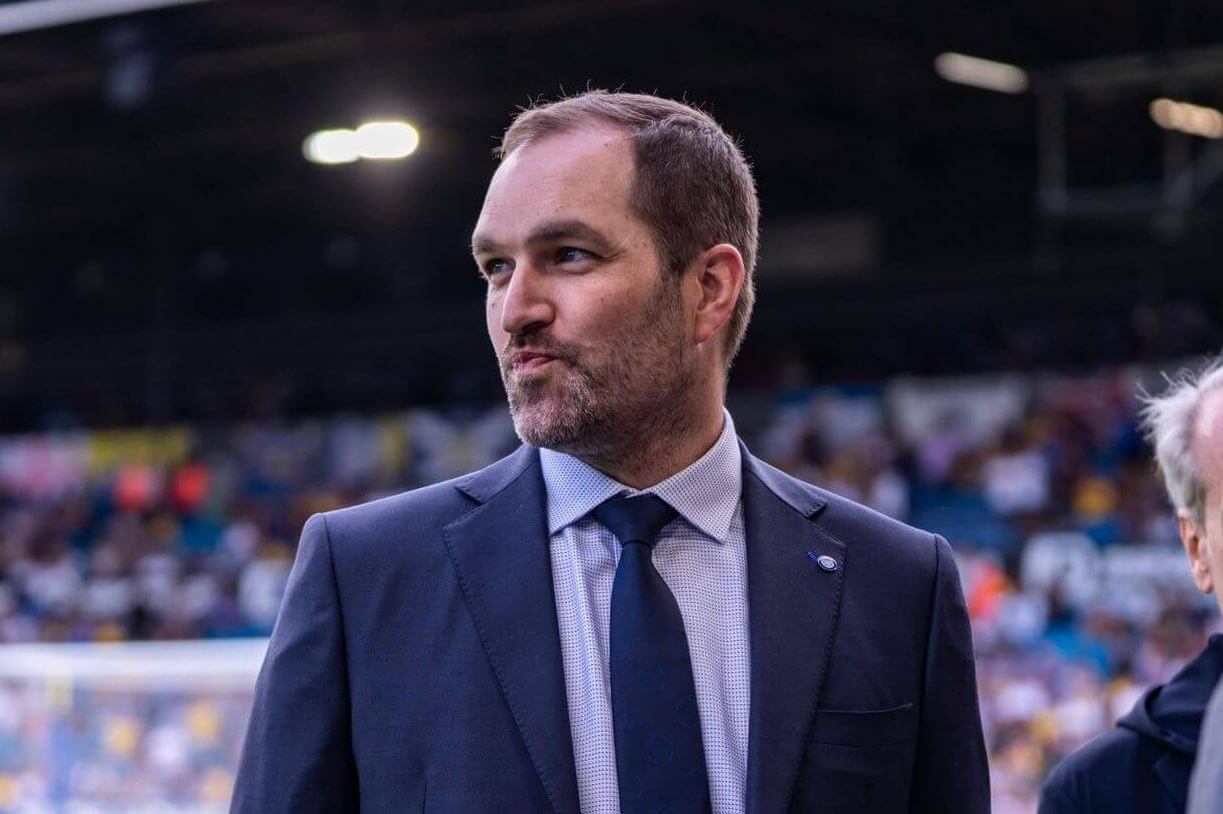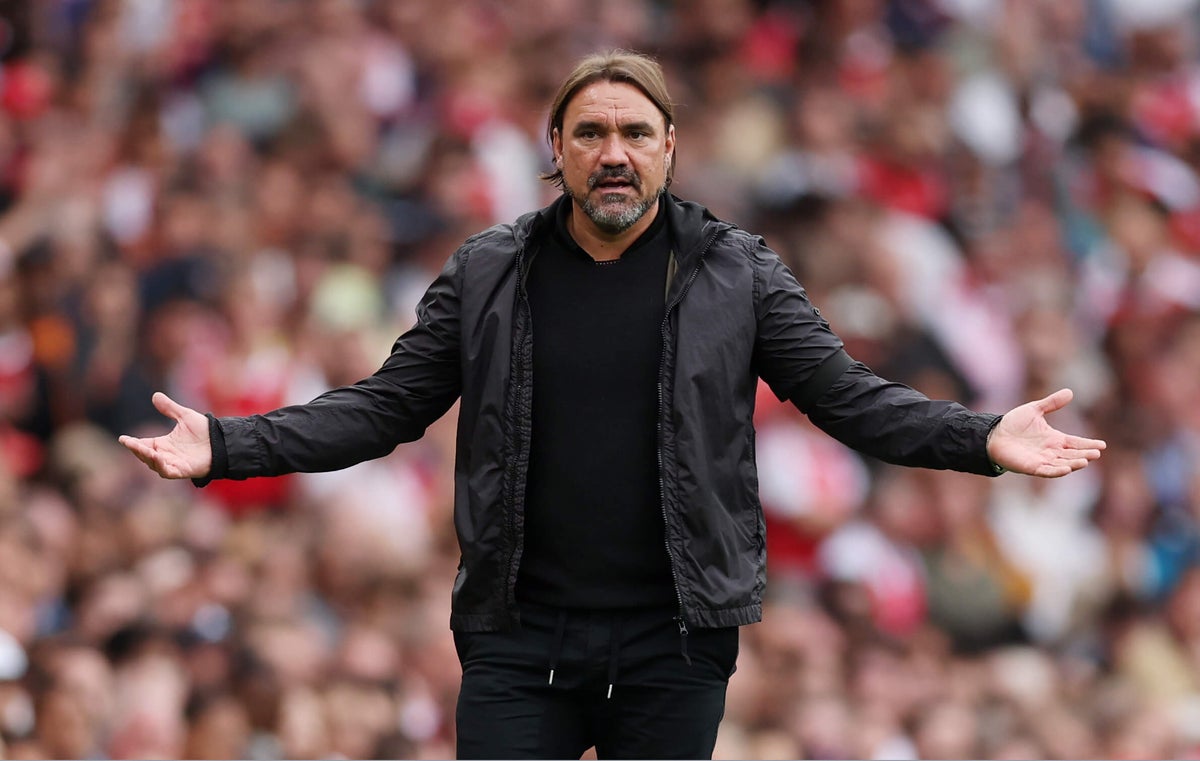Who is Robbie Evans?
That was the response from some Leeds United fans when this week’s transfer window explanation was published. The club’s managing director faced the media within 24 hours of Monday’s 7pm deadline, with no topics off the table.
Whatever your opinion is on the answers he gave on a range of topics, from profit and sustainability (PSR) to failing to bring in Harry Wilson from Fulham, Evans is at least on the record now, with an official line on how the key decisions were made at the top of the club this summer. Evans, chairman Paraag Marathe, and sporting director Adam Underwood can be held to these rationales as United’s campaign unfolds.
This was the first time Evans had spoken to the media, on the record, since arriving at Elland Road in November 2023. The former San Francisco 49ers executive was appointed without any fanfare as chief strategy officer and then became managing director in April, ahead of chief executive Angus Kinnear’s departure.
With Marathe’s attention spread across Leeds, Glasgow Rangers, and the NFL’s 49ers, Evans is effectively in day-to-day control of the Elland Road operation. And yet, before Tuesday’s interview, some supporters had never heard of him.
Marathe has long been known as the figurehead at the top of the club since the takeover in 2023, while Farke’s control of the football side is self-evident. As the club’s new sporting director for the summer window, Underwood was in the transfer spotlight, but Evans has, rightly, put himself out there for the supporters to judge.
Evans should not be surprised by the weight of reaction to this week’s comments. When he took on this job, he must have known the scrutiny it entailed as the day-to-day leader of a football club of this size.
Farke, as the man responsible for how the team plays, has always been the first to feel the fire or support of the fanbase. The German is experienced enough to know he will feel adoration after a title win, but that calls for the sack will arrive if it starts to turn south on the pitch.
This summer will have been a baptism of fire for Underwood, too, jumping from the insulated confines of academy football into the bearpit of a window that will go some way to deciding whether Leeds are relegated or not. This week’s reaction will show Evans that his head is on the block, too.
Social media has never been a fair gauge of how a wider fanbase feels about anything. For every 10 comments of criticism, there will be just as many who feel the opposite and choose not to comment publicly.
There were plenty of loose threads for supporters to pull at from the interview, though. The clear stance that the club has spent every available penny of their PSR allowance left many baffled, but the club’s accounts over the coming years will reveal all.

Robbie Evans was manager of strategic planning at the San Francisco 49ers from 2011 to 2012 (Leeds United)
The inability, or decision not, to sell players who would have boosted the club’s spending power is a subjective call made by United’s key decision-makers that will never sit right with some supporters. Ultimately, Evans felt the juice was not worth the squeeze.
Had the club sold the likes of Wilfried Gnonto, Mateo Joseph, Pascal Struijk or Ao Tanaka, they would have generated tens of millions of pounds in PSR headroom. That feels like a sensible assumption based on what they were bought for and where their stock was after last season.
The club felt, in the earlier part of the window, there was no sense in making profit on players like that because they could tick off their highest priority incomings without doing so. It was only for the more expensive targets that Evans felt those kinds of sales would be needed.
As it was, they failed to turn Igor Paixao’s head away from Marseille and waited around far too long for a breakthrough with Fulham and Rodrigo Muniz. Evans felt the right ‘stretch’ targets, as he called them, were not available to justify raising the capital needed by selling Gnonto etc.
“We didn’t think it was wise to lose those players because having those guys in the team right now, the quality they bring, the continuity from last season, the familiarity with Daniel’s strategy and his process, adds a ton to our squad,” he said. “Unless they were enabling something truly unique and differential, I’d rather have them here.”
It’s a fair assessment, which, as with most of Evans’s explanations, can only be fully judged at the end of the season. If the continuity, cohesion and familiarity offered by those who stayed does not prove enough to keep Leeds in the league, the inability to sell efficiently in the summer window will be seen as one of the failings.
Joseph was loaned without an option because he has potential and he is a favourite of the chairman’s. If he had been sold for between £10m and £20m, that alone would have generated significantly more PSR headroom.
Could that extra money have been enough to blow Marseille out of the water for Paixao? Or enough to force a rethink by Fulham on Muniz?
If there was the intention to strengthen in central defence with Jaka Bijol, should that have heralded the right moment to generate more room in the transfer budget with Struijk’s sale? As sad as it would be to see favourites go, turning the squad over between Championship and Premier League is a valid strategy.
Gnonto ended last season as the third-choice winger, behind Manor Solomon and Daniel James. This season, if new signing Noah Okafor fails to catch light Gnonto could end up as a regular starter given Solomon has gone to Villarreal on loan for the season.
It would not have had to be Solomon specifically, but would selling one of last season’s backups for an immense profit have been a way to boost spending power? Yes, but, as with Struijk or Tanaka or Joel Piroe, selling them would not have guaranteed success either.
These are the kinds of debates Evans and others behind the scenes at Leeds had to have this summer. Continuity has been considered important over the window. The club looked at how the best Championship teams made the transition into the top flight in the past.
The Reading team of 2005-06, which still has the highest Championship points tally in history, finished eighth in the Premier League one year later. Leeds noted how 11 of their 12 most-used players in the top-flight season had played significant parts in the prior title-winning campaign.
The football landscape has changed 20 years on, and 10 new signings show United wanted to change the squad, but there is evident faith in retaining the nucleus of Farke’s 2025 centurions. It’s time for the football to prove who is right and who is wrong.
(Top photo: Julian Finney/Getty Images)
